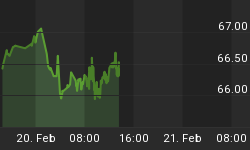In the interests of catching up to the new week following the President's Day holiday, here are some items of interest to help us get back in the swing of things. Enjoy!
(1). The Oil Drum pointed us to the following story from the Telegraph.co.uk, "Cheap solar power poised to undercut oil and gas by half".
The crux of the article: new materials are making solar power cheaper than ever on a per watt basis. Utilities are now concerned that an increasing number of people will use solar power instead of their fossil fuel derived electricity during peak hours. Oh, the horror!
(2). I can't say that I'm an ardent reader of Jim Jubak's investment articles at MSN Money, but the topic of his most recent article seems very interesting.
In, "How long can China pollute for free?", Jubak examines the costs of water and air pollution that arise from China's relentless push for economic growth. While countries such as England and the US took a very long time to embrace environmental responsibility as a cost of doing business, China might be pressured to clean up their act in a much smaller timeframe.
An excerpt from that article:
"Polluting the air or water, releasing toxic amounts of mercury, using so much water that a river runs dry -- these are all what economists call externalities. The costs of these externalities aren't paid by the producers of the pollution but are passed along to third parties -- the general public, in most cases -- in the form of increased illness or higher death rates, and they remain external to the country's GDP accounts.
However, today's externality has a way of becoming tomorrow's on-the-books cost. Just ask any U.S., European or Japanese company about what it costs them to clean up their wastewater, scrub their emissions and safely dispose of their toxic waste today. Those were once externalities -- companies used to simply dump their waste into the air, water and ground. Now disposal is part of the cost of doing business.
That will happen in China, too, someday. Today, however, Chinese companies have a sizable cost advantage over their rivals in the developed world because many of the environmental costs of doing business in the United States, Europe and Japan are still externalities in China. Polluting the air, water and ground at no cost to the company's bottom line makes it easy to undercut the prices charged by companies that don't have a right to pollute for free."
There is definitely an element of "crying foul" in a lot of these articles and news stories on China. I'm seeing a very consistent undercurrent of "unfair advantage" accusations being leveled at China in the media's recent coverage of the country.
Having heard all the reports of China's terrible pollution problems (and other associated growing pains), I'm inclined to agree with the assertion that these alarming trends need to be checked and hopefully, reversed. However, I can't help wondering lately how much of this news is delivered as part of an "info-war" against an up and coming economic superpower.
If it's not complaints about the environmental fallout of their industrial growth, then it's an attack on their currency exchange rate or unfair trade policies, at least in the US press.
I do hope that people will put some of these problems into the proper context (in terms of our own histories and difficulties dealing with these issues) and direct more attention towards helping China and other industrializing nations deal with these problems. If we've really "been there and seen that", then we should have a lot of expertise to lend.
(3). More on emerging-market risks (and opportunities) from Bloomberg in this recent story on political instability and share prices in Thailand.
What, not adventurous enough to suit your needs? Then see, "Vietnam, Zambia Overtake BRIC Stocks as 'Frontier' Markets Soar".
(4). The commodity bull market is in full effect. Dig this headline from Bloomberg: "Corn Farms Replace Manhattan Lofts, London Flats as Hottest Real Estate".
Here are the opening paragraphs from that article:
"Farmland from Iowa to Argentina is rising faster in price than apartments in Manhattan and London for the first time in 30 years.
Demand for corn used in ethanol increased the value of crop land 16 percent in Indiana and 35 percent in Idaho in 2006, government figures show. The price of a Soho loft appreciated only 12 percent, while a pied-a-terre in Islington near London's financial district gained 11 percent, according to realtors.
Farmland returns "will take a quantum leap over the next 18 months," after corn prices surged to a 10-year high in February, said Murray Wise, the 58-year-old chairman and chief executive officer of Westchester Group Inc. in Champaign, Illinois, who oversees $460 million of land investments."
Hmmm, farmland in Argentina is up, eh? Do I not recall a certain investment strategist recently recommending Argentinian farmland as an investment while the Bloomberg TV anchor openly laughed off his suggestion?
That strategist is Marc Faber and that video clip is here.
(5). "Fed's Inflation Analysis Ranks With Zimbabwe's: Caroline Baum".
I'm starting to see why Richard Russell holds Caroline Baum's work in such high regard.
As far as we're concerned, you're up to date. Let us know if you have a good story or news item to share.
















